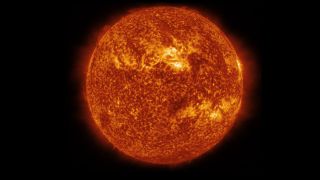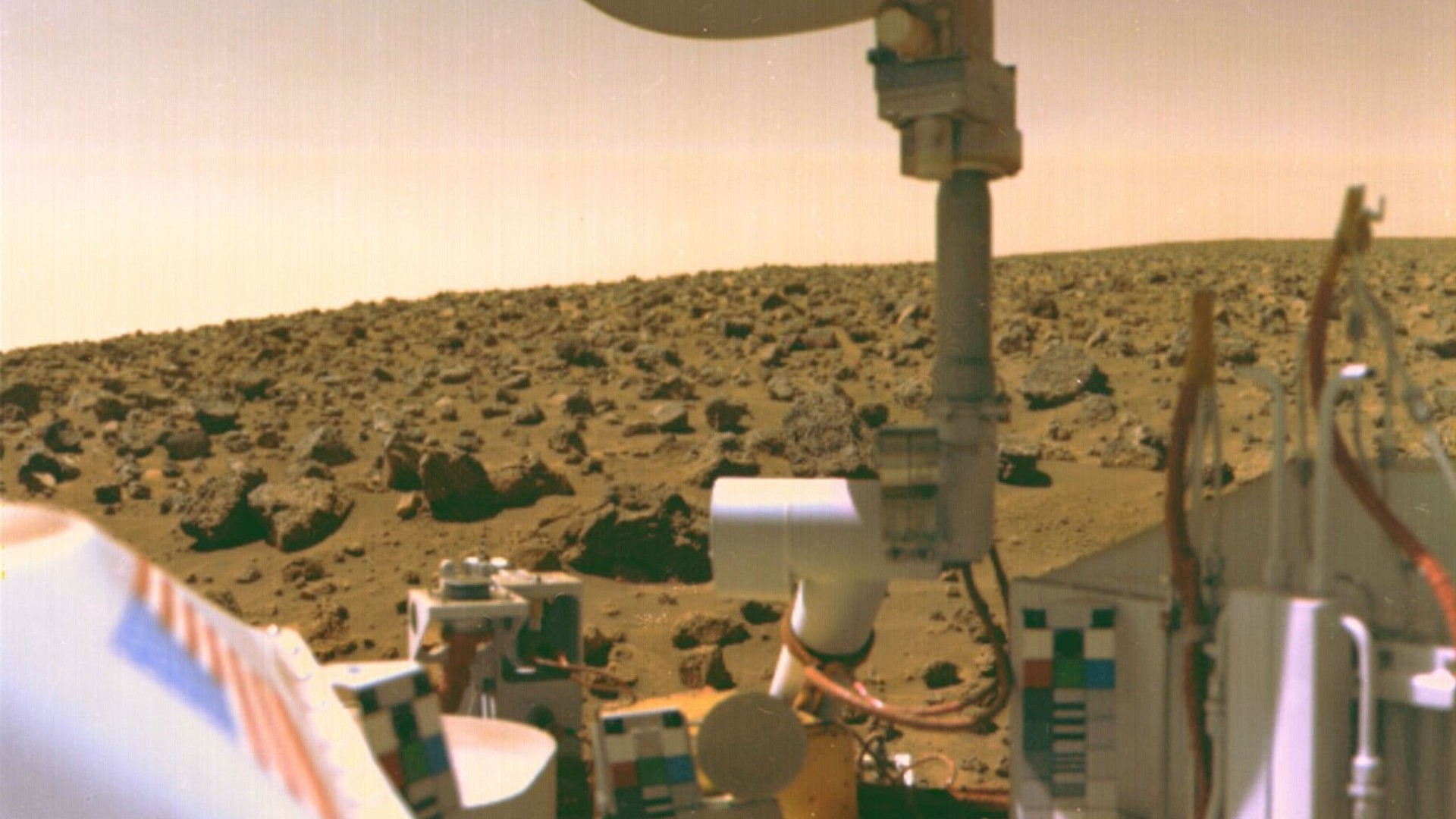Scott is a staff writer for How It Works magazine and has previously written for other science and knowledge outlets, including BBC Wildlife magazine, World of Animals magazine, Space.com and All About History magazine. Scott has a masters in science and environmental journalism and a bachelor's degree in conservation biology degree from the University of Lincoln in the U.K. During his academic and professional career, Scott has participated in several animal conservation projects, including English bird surveys, wolf monitoring in Germany and leopard tracking in South Africa.
Latest articles by Scott Dutfield

What is a blood moon and when can you see the next one in 2026?
By Daisy Dobrijevic last updated
Reference A blood moon, or total lunar eclipse, turns the moon red — here's what causes it and when to see the next one
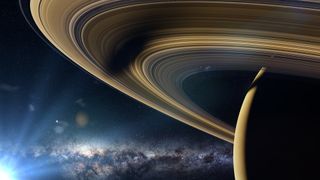
Saturn: Everything you need to know about the sixth planet from the sun
By Charles Q. Choi last updated
Reference Saturn is the sixth planet from the sun and the second-largest planet in the solar system. We explore this gas giant in more detail here.
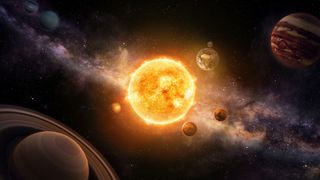
Solar system guide: Discover the order of planets and other amazing facts
By Daisy Dobrijevic last updated
Reference Explore the eight (or nine) planets of the solar system in order from nearest to the sun and discover the many wonders of our solar system along the way.

What is the theory of general relativity? Understanding Einstein's space-time revolution
By Nola Taylor Tillman, Meghan Bartels, Scott Dutfield last updated
Reference Albert Einstein's theory of general relativity is based on the idea that massive objects cause a distortion in space-time, which is felt as gravity.
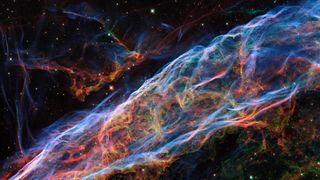
Nebula: Definition, location and variants
By Andrew May last updated
Reference Among the most spectacular sights in the sky, nebula come in a range of different types.
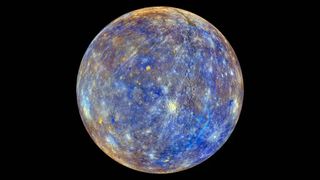
Mercury: A complete guide to the closest planet to the sun
By Charles Q. Choi, Daisy Dobrijevic last updated
Reference Mercury is the closest planet to the sun and the smallest planet in the solar system. Here we explore the strange world in more detail.

Stephen Hawking biography: Theories, books & quotes
By Nola Taylor Tillman, Daisy Dobrijevic last updated
Reference Delve into the life and theories of Stephen Hawking; one of the greatest theoretical physicists in history.
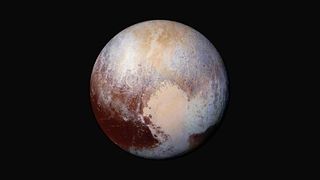
Pluto: Everything you need to know about the dwarf planet
By Charles Q. Choi, Scott Dutfield last updated
Reference Pluto was once considered the ninth planet in the solar system, it was demoted in 2006 to dwarf planet status. We explore this icy body in more detail here.
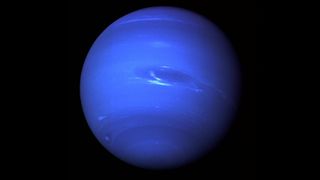
Neptune: A guide to the windy eighth planet from the sun
By Charles Q. Choi last updated
Reference Neptune is the farthest planet from the sun and was the first to be predicted before it was discovered.
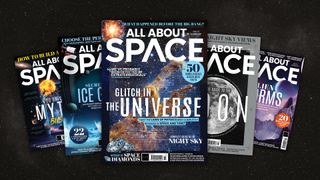
Discover the glitch in the universe with All About Space magazine
By Scott Dutfield published
All About Space magazine issue 137 explores glitches in the universe and how the laws of physics may have been reversed. Take at look at the latest issue here.

Why is the sky blue?
By Andrew May last updated
Reference The sky is blue and sunsets are red because different colors of light behave differently when they encounter air molecules, known as Rayleigh scattering.

Astronaut's Battlestar Galactica Starbuck cosplay in space thrills sci-fi convention fans (video)
By Scott Dutfield last updated
Astronaut Samantha Cristoforetti has once again brought cosplay to space dressed as Starbuck from Battlestar Galactica.
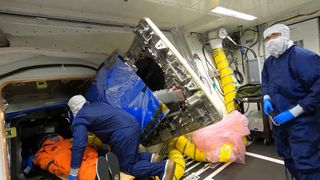
NASA's 'Moonikin' mannequin boards Orion spacecraft for Artemis 1 moon mission
By Scott Dutfield published
NASA has completed the next steps in the Artemis 1 mission — installing the data-gathering mannequin Commander Moonikin Campos inside the Orion spacecraft.
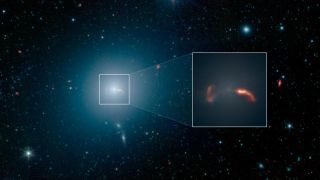
What does a giant black hole and its galaxy sound like?
By Scott Dutfield published
Meet the newest stars on the music scene. Well, not stars precisely.
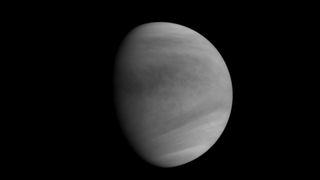
Why is a day on Venus longer than a year? The atmosphere may be to blame.
By Scott Dutfield published
Venus' dense and stormy atmosphere is the cause why a day on the scorching planet is longer than a year, a new study suggests.
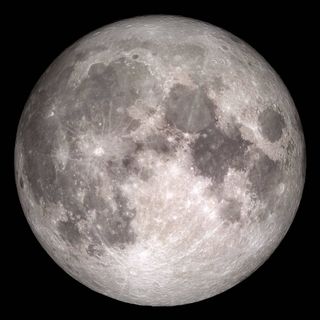
New contest will send artwork to the moon
By Scott Dutfield published
300 lucky artists will have their art flown on a one-way ticket to the moon.
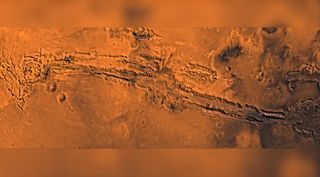
2 giant marsquakes rock the far side of Mars
By Scott Dutfield published
Mars was recently shaken up by two of the largest marquakes recorded.
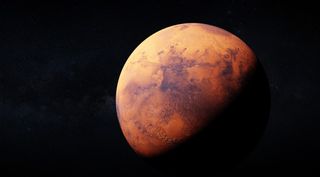
Digging deep on Mars could protect future astronauts from radiation
By Scott Dutfield published
Future Mars astronauts may need to go underground to avoid dangerous radiation

Space Launch System: NASA's megarocket for Artemis moon missions
By Nola Taylor Tillman published
Reference NASA's Space Launch System aims to carry humans far beyond Earth.
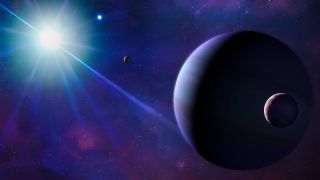
10 amazing exoplanet discoveries
By Andrew May published
Reference New exoplanet discoveries have changed what we understand about the universe and now astronomers are finding alien worlds all the time.

Could we really build Star Trek's USS Enterprise?
By Scott Dutfield published
Reference The U.S.S. Enterprise is one of the most famous spacecraft in science fiction but how close are scientists to building one?

Supermassive black holes: Theory, characteristics and formation
By Andrew May published
Reference What are supermassive black holes and how are they created?

Best sci-fi mobile games
By Robert Carnevale published
Need your fix of mobile sci-fi action? These games will do the trick.
Breaking space news, the latest updates on rocket launches, skywatching events and more!

